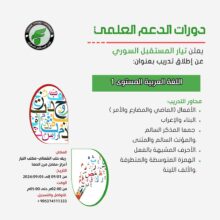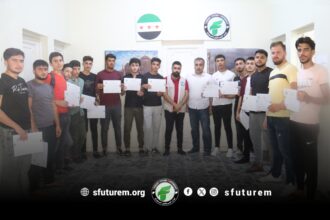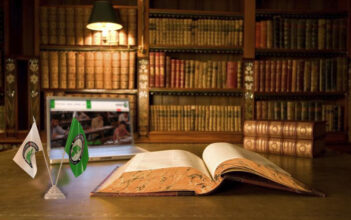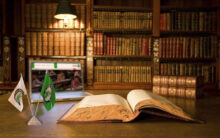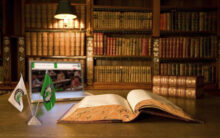A Reading in “The Question of Destiny” by the Syrian author Dr. Burhan Ghalioun.
The president of (SFM) Dr. Zaher Baadaran’s interest in Dr. Burhan Ghalioun’s latest book “The Question of Destiny: Two Centuries of Arab Struggle for Sovereignty and Freedom,” published by the Arab Center for Research and Policy Studies in 2023, captured my attention. The focus of the discussion between Dr. Baadarani and me revolved around Ghalioun’s attribution of responsibility to the West for rendering our East “crippled,” to use the author’s term. From Selim I, to Muhammad Ali Pasha, and up to Saddam Hussein, their actions were characterized by emancipation from Western power, as a genuine and invisible prerequisite for our entry into modernity, a topic extensively discussed by the author.
Although he recommends adopting democracy in the conclusion of his book, we find him lenient with the examples he provides to support this thesis! This is particularly noteworthy. In the first three chapters, he primarily blames the West for hindering our entry into modernity due to its covetousness of our unique geography, which has become a curse upon us. Then, he assigns responsibility to the educated elite for their focus on delusions, as he describes in the fourth chapter. In the fifth chapter, he accuses them of creating a “crippled people,” analogous to the West’s creation of “The Crippled East.”
There are many interpretations of Ghalioun’s book, a book that explodes with ideas as soon as you touch it, each idea demanding scrutiny, each chapter requiring engagement. Dr. Ghalioun has managed to create a tension with his readers by establishing his “revolutionary” idea that points to recent rather than ancient history, to political reality rather than heritage. The problem, he says, lies ahead, not behind. The evidence from history and the present affirms that no backward, mythical ideology could have triumphed under a modern political leadership! All modernist leaders—deemed modernist from Ghalioun’s perspective—managed to align thinkers and religious men with them, despite their own exaggerations and lamentations. They even managed to employ religion and heritage as effective tools in the hands of those politicians.
Ghalioun keeps you in a state of tension between accepting the idea of the despot independent of the West and his recommendation for democracy as the foundation of political systems, affirmatively answering the question of the possibility of progress.
What struck me was that Dr. Baadarani shared my vision and the conclusions I had drawn, that the crux of the problem lies in Western hegemony on one hand, and delusional intellectuals on the other! In our view, the West is not the one who has whipped our backs with lashes during the rule of Hafez and Bashar al-Assad, nor is it the one who has driven millions of Syrians from their homes, nor has it made Syrians into displaced and refugees, nor has it refused to welcome them in the lands of Arab brethren and Muslim countries. Instead, we find the West—deemed racist, as they claim—opening its doors to them despite the rise of far-right extremism and its fear of their large migrating numbers, going so far as to grant them citizenship comfortably, knowing that they belong to their homeland first and foremost.
The West is not those jihadist Islamic movements that embody the imagination of the Islamic Caliphate in their essence, seeking to reject all forms of political systems within them. Even if a leader or politician undermines them, he will, at the very least, remain awaiting his turn for assassination and elimination as an enemy of God and Islam.
The West is oblivious to the concept of the ‘Guardianship of the Islamic Jurist’, and does not grasp the notion of militias tied to a supreme or lesser leader, which fragment the nation and exploit its resources.
As for the intellectuals, they are children of reality, each perceiving it from their angle, and it is impossible to unify them under a single structural framework, whether they theorize on reforming the Arab mind, advocate for religious renewal, or live in their illusions. They can never be placed in one basket and accused of creating feeble nations!
Nevertheless, one cannot underestimate the magnitude of Western ambitions, the significance of their influence’s expansion, their manipulations, and even their management of conflicts to serve their interests.
Nor can one belittle the role of clergymen, intellectuals, and thinkers submerged in a quixotic struggle that neither fosters modernity nor broadens horizons.
Our dialogue has ended, and these are the thoughts in my head that I wished to arrange on this paper.
Perhaps the reader (any reader) can appreciate the state of confusion instilled by Dr. Burhan Ghalioun in his book, a confusion that leaves us justifying his perspective from one angle and entangled with it from others. Perhaps the coming days will afford us the opportunity to dedicate a detailed and careful reading to the book, after this overarching perusal.

